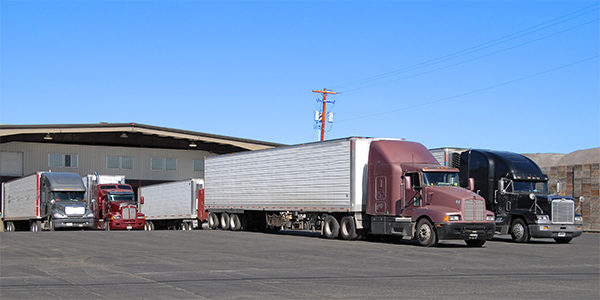First published by Safety+Health an NSC publication.

Washington — The Federal Motor Carrier Safety Administration is seeking public comment on a proposal to revise the agency’s guidance on “yard moves” and commercial motor vehicle drivers’ hours of service.
According to a notice published in the Jan. 4 Federal Register, FMCSA regulations require most CMV drivers to record their HOS under four categories: driving; on-duty, not driving; sleeper berth; and off-duty. The agency’s design and performance standards for electronic logging devices – which record HOS – provide two “special driving categories”: personal conveyance and yard moves.
FMCSA, however, did not define “yard moves” in its final rule on ELDs and is seeking to update its guidance to include the following: “A driver may record time operating a CMV for yard moves as on-duty, not driving under 49 CFR 395.8(b) only if the movement of the CMV occurs in a confined area on private property,” such as an intermodal or port facility.
Other examples of “yards” may include a motor carrier’s place of business; a shipper’s privately owned parking lot; and a public road where access is restricted by gates, lights, flaggers or other means.
“For example,” FMCSA says, “if a driver must operate on a public road briefly to reach different parts of a private property, the movement may be considered a yard move if public access is restricted during the move.”
Additionally, FMCSA is seeking responses to the following questions:
- Would defining “yard moves” provide necessary clarification while benefiting drivers and carriers?
- Are there other situations or properties where drivers may be in a “yard move” status that should be included in the guidance?
- Would adding examples of “yard moves” prove helpful? If so, give examples for consideration.
- How should “yard” be defined in the guidance?
The deadline to comment is Feb. 3. FMCSA plans to reevaluate its guidance “no later than” five years after it’s finalized.
“This guidance, if finalized, lacks the force and effect of law and is not meant to bind the public in any way,” FMCSA says. “This guidance document is intended only to provide clarity to the public regarding the agency’s interpretation of its existing regulations.”
McCraren Compliance can help you understand and comply with FMCSA and USDOT to ensure your drivers and your vehicles operate safely and efficiently.
Call us Today at 888-758-4757 or email us at info@mccrarencompliance.com to schedule your free FMCSA Compliance Assessment.


